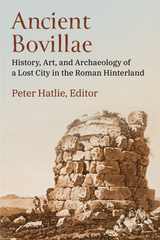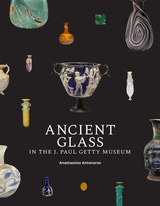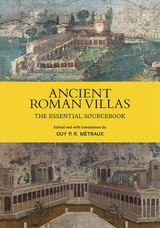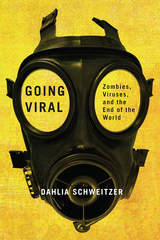
In Going Viral, Dahlia Schweitzer probes outbreak narratives in film, television, and a variety of other media, putting them in conversation with rhetoric from government authorities and news organizations that have capitalized on public fears about our changing world. She identifies three distinct types of outbreak narrative, each corresponding to a specific contemporary anxiety: globalization, terrorism, and the end of civilization. Schweitzer considers how these fears, stoked by both fictional outbreak narratives and official sources, have influenced the ways Americans relate to their neighbors, perceive foreigners, and regard social institutions.
Looking at everything from I Am Legend to The X Files to World War Z, this book examines how outbreak narratives both excite and horrify us, conjuring our nightmares while letting us indulge in fantasies about fighting infected Others. Going Viral thus raises provocative questions about the cost of public paranoia and the power brokers who profit from it.
Supplemental Study Materials for "Going Viral": https://www.rutgersuniversitypress.org/going-viral-dahlia-schweitzer
Dahlia Schweitzer- Going Viral: https://www.youtube.com/watch?v=5xF0V7WL9ow
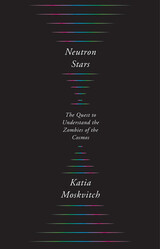
The astonishing science of neutron stars and the stories of the scientists who study them.
Neutron stars are as bewildering as they are elusive. The remnants of exploded stellar giants, they are tiny, merely twenty kilometers across, and incredibly dense. One teaspoon of a neutron star would weigh several million tons. They can spin up to a thousand times per second, they possess the strongest magnetic fields known in nature, and they may be the source of the most powerful explosions in the universe. Through vivid storytelling and on-site reporting from observatories all over the world, Neutron Stars offers an engaging account of these still-mysterious objects.
Award-winning science journalist Katia Moskvitch takes readers from the vast Atacama Desert to the arid plains of South Africa to visit the magnificent radio telescopes and brilliant scientists responsible for our knowledge of neutron stars. She recounts the exhilarating discoveries, frustrating disappointments, and heated controversies of the past several decades and explains cutting-edge research into such phenomena as colliding neutron stars and fast radio bursts: extremely powerful but ultra-short flashes in space that scientists are still struggling to understand. She also shows how neutron stars have advanced our broader understanding of the universe—shedding light on topics such as dark matter, black holes, general relativity, and the origins of heavy elements like gold and platinum—and how we might one day use these cosmic beacons to guide interstellar travel.
With clarity and passion, Moskvitch describes what we are learning at the boundaries of astronomy, where stars have life beyond death.
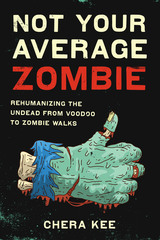
The zombie apocalypse hasn’t happened—yet—but zombies are all over popular culture. From movies and TV shows to video games and zombie walks, the undead stalk through our collective fantasies. What is it about zombies that exerts such a powerful fascination? In Not Your Average Zombie, Chera Kee offers an innovative answer by looking at zombies that don’t conform to the stereotypes of mindless slaves or flesh-eating cannibals. Zombies who think, who speak, and who feel love can be sympathetic and even politically powerful, she asserts.
Kee analyzes zombies in popular culture from 1930s depictions of zombies in voodoo rituals to contemporary film and television, comic books, video games, and fan practices such as zombie walks. She discusses how the zombie has embodied our fears of losing the self through slavery and cannibalism and shows how “extra-ordinary” zombies defy that loss of free will by refusing to be dehumanized. By challenging their masters, falling in love, and leading rebellions, “extra-ordinary” zombies become figures of liberation and resistance. Kee also thoroughly investigates how representations of racial and gendered identities in zombie texts offer opportunities for living people to gain agency over their lives. Not Your Average Zombie thus deepens and broadens our understanding of how media producers and consumers take up and use these undead figures to make political interventions in the world of the living.
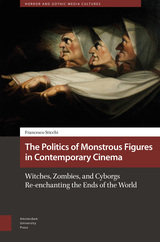
Written in an ‘acid communist’ spirit, the book shows how it is possible to politicise contemporary popular culture tropes and figures, mapping the anxieties they express and also their undisclosed potential and resources. Balancing personal commentary and academic analyses, the book expresses Deleuzian trust in the power of moving images as instruments that allow us to inhabit the present and believe in this world notwithstanding alleged ends of all worlds.
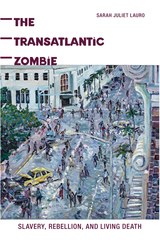
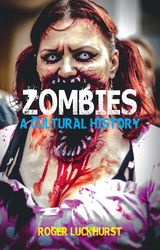
Luckhurst follows a trail that leads from the nineteenth-century Caribbean, through American pulp fiction of the 1920s, to the middle of the twentieth century, when zombies swarmed comic books and movie screens. From there he follows the zombie around the world, tracing the vectors of its infectious global spread from France to Australia, Brazil to Japan. Stitching together materials from anthropology, folklore, travel writings, colonial histories, popular literature and cinema, medical history, and cultural theory, Zombies is the definitive short introduction to these restless pulp monsters.


READERS
Browse our collection.
PUBLISHERS
See BiblioVault's publisher services.
STUDENT SERVICES
Files for college accessibility offices.
UChicago Accessibility Resources
home | accessibility | search | about | contact us
BiblioVault ® 2001 - 2025
The University of Chicago Press



